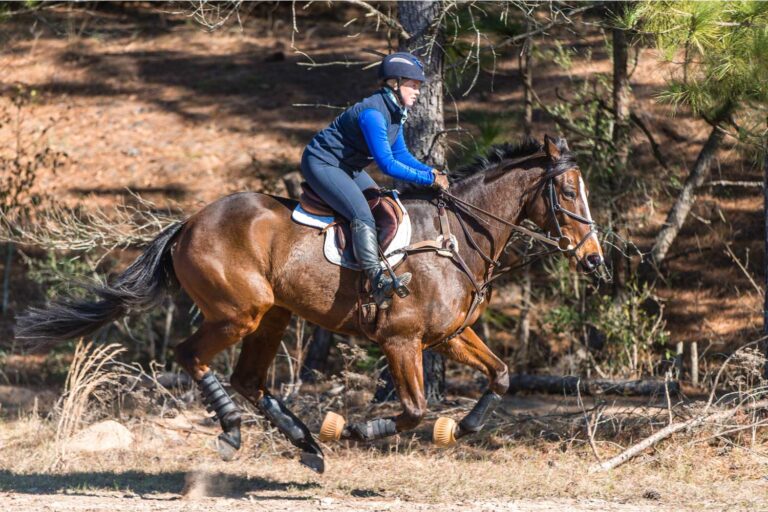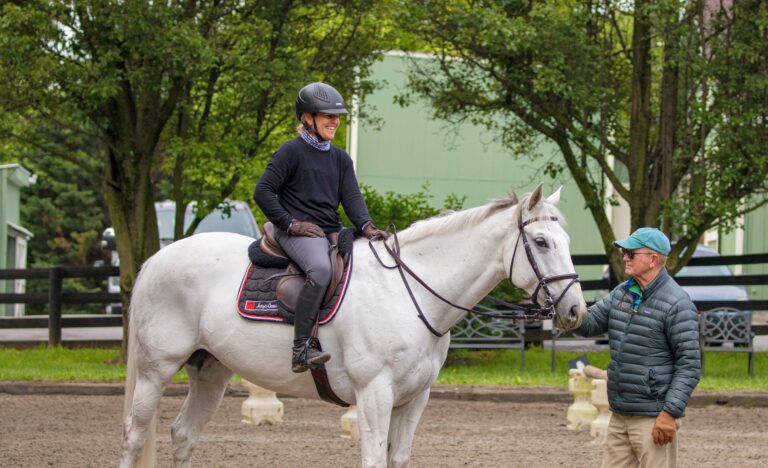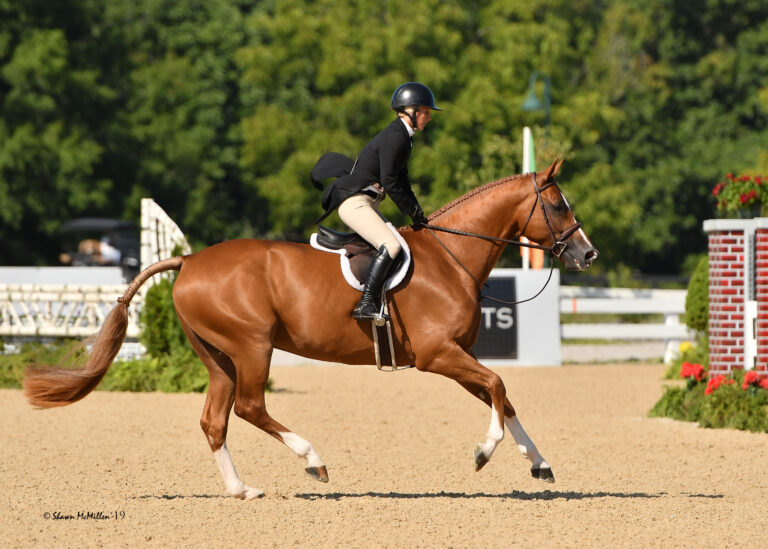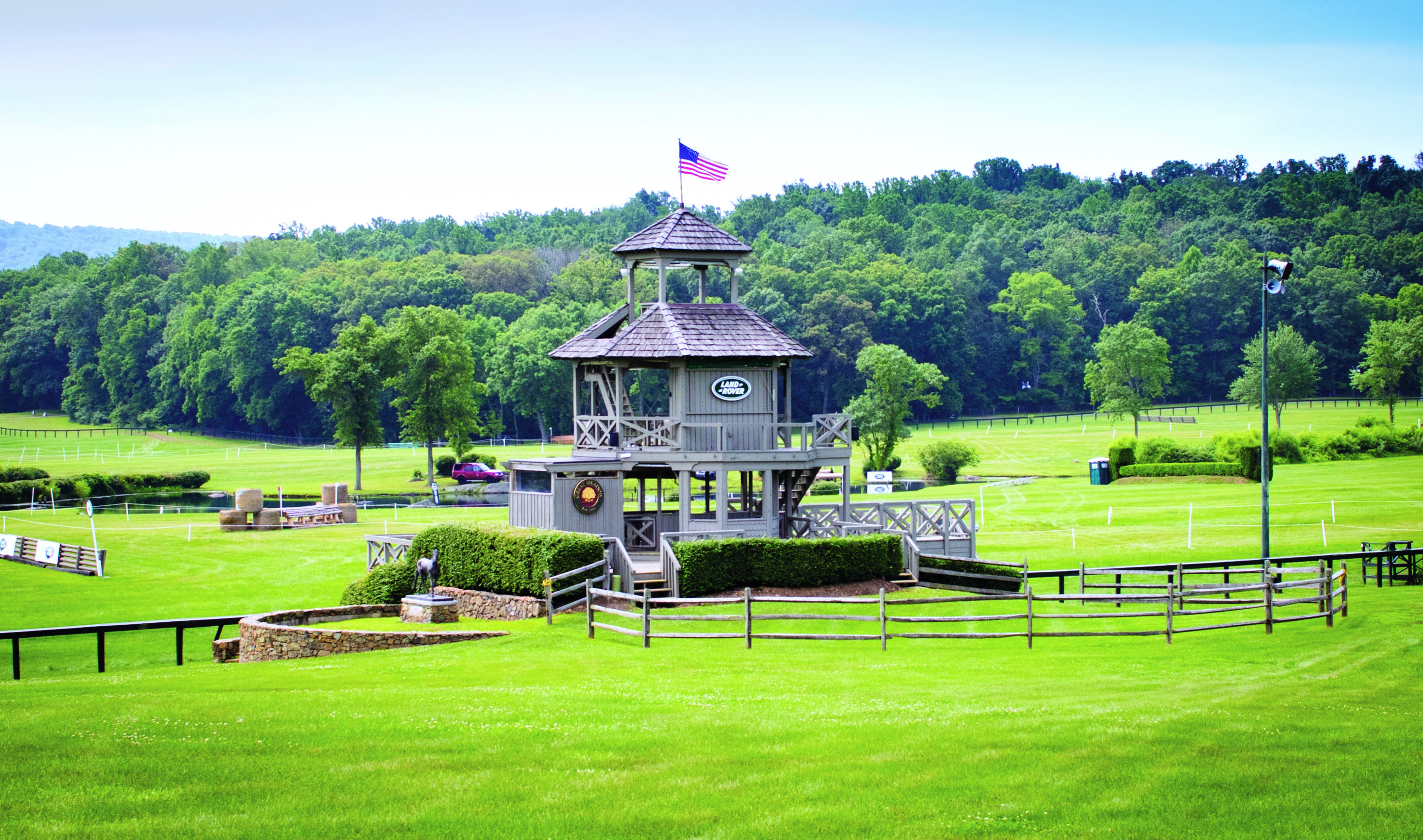
When Team USA won the first FEI Nations Cup™ Eventing leg held outside Europe last year, the occasion signified much more than a victory for the Stars and Stripes. A longtime goal to bring a high-caliber eventing competition to Great Meadow had been realized.
The past five years have felt like a homecoming for the sprawling parkland in The Plains, Virginia—less than 50 miles outside of Washington, D.C.—which first began hosting horse trials in 1985, soon after its inception.
Although the venue is synonymous with the famed Virginia Gold Cup steeplechase race that draws upward of 50,000 spectators annually, it also regularly played host to top eventing competitions for two decades in its heyday.
While Great Meadow endured a 10-year hiatus before eventing returned to the site in 2014, the venue’s roots were never far from the minds of the dedicated individuals who share the same fierce commitment to the sport and a passionate desire to preserve open space. Now its future looks as bright as the sunlight that glinted off the Nations Cup trophy last July.
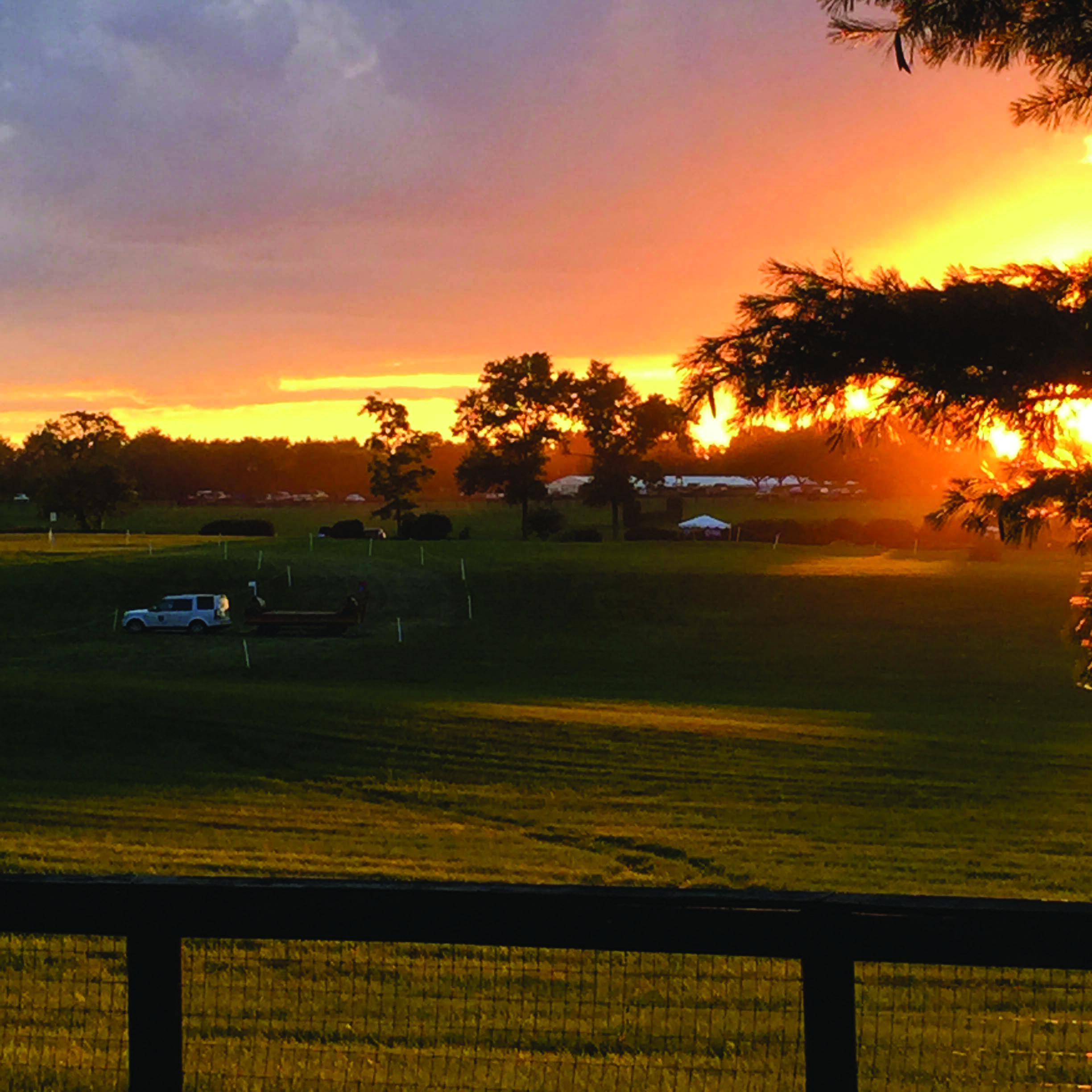
Fleming Farm
When the opening of Interstate 66 triggered an explosion of urban development west of Washington, D.C. in 1982, housing developers began rapidly purchasing farmland. Arthur W. “Nick” Arundel, a philanthropist and newspaper executive, knew builders were eyeing the 500-acre Fleming Farm, a failed dairy operation, to construct more than 500 homes.
A staunch proponent of protecting open land and also an avid steeplechase fan, Nick saw the farm as a permanent home for the Virginia Gold Cup, which had recently lost its lease on the Broadview Race Course in Warrenton, Virginia and needed to relocate.
He purchased the property and established the nonprofit that later became the Great Meadow Foundation, donating 200 acres with a mission to “preserve open space in service to the community.”
Following the construction of a steeplechase course and successful test gallops, the Virginia Gold Cup moved to Great Meadow in 1985 for its 60th running. With scenic views punctuated by sweeping vistas, rolling hills and lush trees—all set in a natural bowl that makes for perfect viewing from virtually anywhere on the property—Great Meadow quickly became a top equestrian destination in the region.
It came as no surprise then that local horseman Jim Wilson looked to Great Meadow as a potential venue to host the Middleburg Horse Trials, also in need of a new home. Jim and his wife, Barbara, had organized the horse trials at their Dresden Farm from 1975 to 1984 and as the event grew more popular, they needed a larger venue capable of hosting more horses and riders.
Jim approached Olympic medalist Jim Wofford with the idea of moving the horse trials to Great Meadow as well as broadening the scope of the event to include international levels. Nick, fully committed to using the land to serve many more beyond the steeplechase community, embraced the idea, and Jim Wofford signed on as course designer.
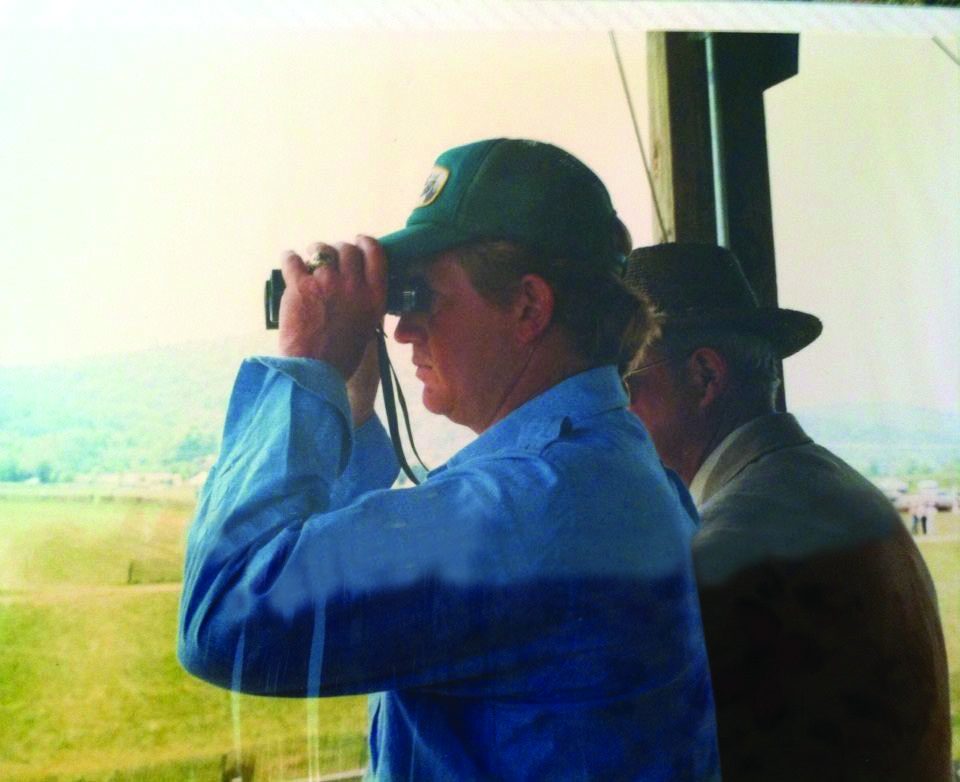
The CCI**** Vision
Always dreaming bigger, Nick envisioned that the venue could also host a CCI**** one day. At the time, there were two CCI**** competitions in the world—Badminton and Burghley, both located in England—and Nick asked Jim to explore the possibility of hosting a CCI**** at Great Meadow.
“I said there wasn’t enough land for the cross-country course in the 200 acres that made up Great Meadow. They asked about the rest of the property to the east, and I walked it and measured it,” Jim said. “This was when a CCI**** was over 8,000 meters, as opposed to the 6,000 meters they go these days—another mile and a quarter. I said it would be quite artificial but it could be done if the foundation purchased the neighboring property, but that never happened.”
With Nick’s vision to host a CCI**** on hold, Great Meadow ran the Middleburg Horse Trials in 1985 and 1986 before re-naming the competition to Virginia Horse Trials and adding a CCI** the following two years. When Jim Wilson retired from the organizing committee, the horse trials moved to Glenwood Park, where the competition still runs today, once again as the Middleburg Horse Trials.
Great Meadow’s cross-country course then sat unused for seven years, but the iconic elements built for the original horse trials held at the property—like the striking stone wall—continued to delight the thousands of spectators that visited each year for the Virginia Gold Cup.
“Many of the original features are still there that we constructed in the ‘80s. The stonework was done by a man named Bishop Howard, a stonemason in the area, who built many of the stone houses that you see scattered through the Middleburg area with his father and son,” Jim Wofford said.
“His father helped build the stone wall and water work at the main lake. This is a man whose great grandfather was a slave involved in building something there that is still visible today.”
While Jim Wofford believes many attributes make Great Meadow such a notable piece of property, from the rolling terrain to the lush turf, the story of the land partnered with Virginia’s historical association with horses stands out in his mind.
“George Washington and Lord Fairfax foxhunted over that land. There were Civil War battles fought back and forth through there. Virginia has such a long historical tradition, and Great Meadow plays its own key role.”
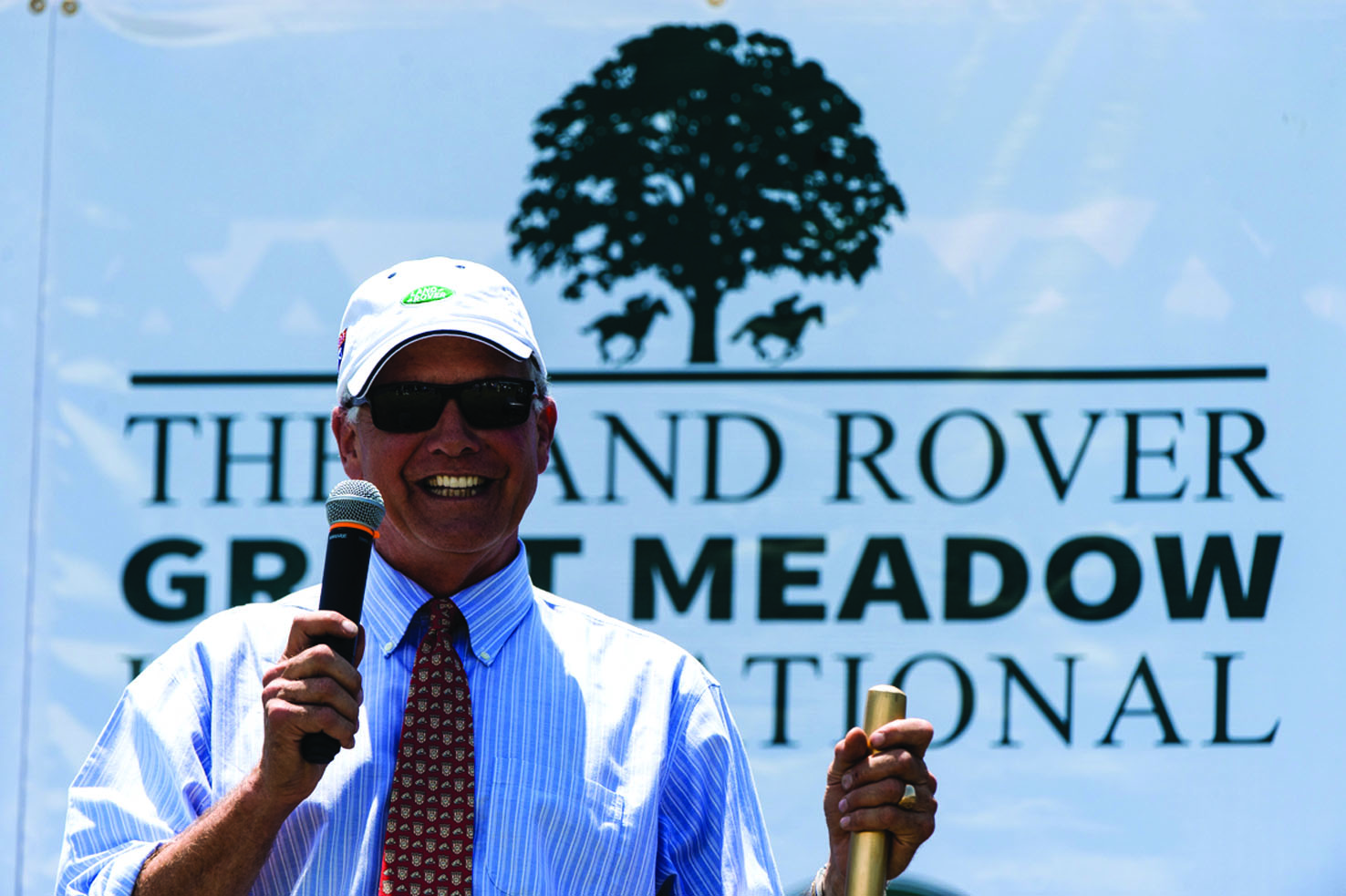
The Next Chapter
Following another seven-year gap with no eventing held at the venue, the Commonwealth Dressage and Combined Training Association renewed the sport once more in 1995, hosting the CDCTA Horse Trials at Great Meadow for the next decade.
The CDCTA built a new Preliminary level course in 1995 and an Intermediate course in 1996 and went on to host a CCI* and CCI** in 2001 before moving to Locust Hill Farm in Culpeper, Virginia in the fall of 2005.
The Virginia Gold Cup continued going strong at Great Meadow during that time as well as Twilight Polo and Twilight Jumpers, the Virginia Scottish Games, wine festivals and a variety of other cultural events. While the venue upheld its mission to serve the community through dedicated open space, it began to struggle financially in a changing economy.
Great Meadow needed an advocate to solidify eventing permanently at the venue, and considering Nick was a prominent news executive himself, it proved serendipitous that a fellow newsman, Rob Banner, would be the one to ultimately restore the property’s eventing heritage.
Rob, a former publisher of The Chronicle of the Horse, had sat on the Board of Directors for the Great Meadow Foundation for 17 years when he decided to take on the role of foundation president in 2008.
“Great Meadow had reached the point where it was no longer financially positive,” Rob said. “I had 30 years of experience in horse publications and I’d been to so many different events in a variety of disciplines across the country. It gave me a great sense of right and wrong with running events and how it should be done to deliver an effective product.”
With an immediate goal to make Great Meadow profitable, Rob renegotiated the contracts for all of the events the venue hosted. “The minute we did that, everything came into a better picture financially. We were able to add sponsorship and sales that hadn’t happened before. By the end of the second year, we were making money and it continued to grow.”
When Nick passed away in 2011, his family placed the remaining portion of the Fleming Farm property up for sale. “At that point I knew we didn’t have the money to pay for it and I knew we would have to find very generous donors to help us buy it,” Rob said. “To do that I needed to host a big event to make the money necessary to pay for the upkeep of the land. All of my friends from the days at The Chronicle said I should bring back eventing.”
Rob knew he would need to host a large-scale event equal in prestige to the Rolex Kentucky Three-Day Event, and with Nick’s original vision to host a CCI**** event at Great Meadow in mind, he called up Olympic gold medalist David O’Connor.
“David said it was too soon to host a CCI****, but he had been looking for a place to host the first FEI Nations Cup™ Eventing leg in America. Having been to a number of Nations Cups around the world, I thought it was a perfect idea. David said that if I could buy the land and build a world-class all-weather arena, he thought he could bring a Nations Cup to Great Meadow.”
A long-term strategic plan to bring a Nations Cup leg to Great Meadow began to take shape. It had been a decade since the last CDCTA Horse Trials was held at the venue, and Rob and David started small, first hosting a preparatory horse trials for the U.S. and Canadian teams ahead of the 2014 World Equestrian Games.
Eventing’s long anticipated return to Great Meadow combined with the buzz surrounding the World Equestrian Games drew about 12,000 people to the venue over a 36-hour period. David and event co-organizer Darrin Mollett knew they were on to something special.
Great Meadow then applied to host a CIC*** in 2015, which would bring an international level competition back to the venue for the first time in 15 years. With the promise of a major event coming to the Middleburg area, Rob raised $4 million from generous donors to purchase the 174 remaining acres of the Fleming Farm property.
“This area had never hosted a top international eventing competition before but had always been a nexus of some of the best equestrian competition in the country as well as home to some of the best riders, from hunter/jumper to steeplechase and foxhunting to eventing. That was something people could get excited about.”

Making a Mark
Construction began on a 300-by-250-foot all-weather arena with an adjacent 400-by-100-foot warm-up ring and integrated water complex. World-renowned course designer Mike Etherington-Smith created a new cross-country course built on superior turf that had been meticulously maintained by the same grounds manager for the past 30 years.
Great Meadow successfully hosted its inaugural CIC*** with $30,000 in prize money in 2015—running alongside the preparation trials for the Pan American Games—and the FEI approved the proposal to host a Nations Cup leg soon after.
The FEI Nations Cup™ made its debut at Great Meadow on July 8–10, 2016, and attracted throngs of spectators to watch the unveiling of the spectacular new arena and teams from the U.S., Canada and Great Britain compete.
Clark Montgomery won the first Nations Cup with his Rio Olympic partner Loughan Glen, a special victory for him considering he spent a decade based in Middleburg and fondly remembers competing at the CDCTA Horse Trials 15 years ago.
“In coming back to Great Meadow, what stood out to me the most was that not much had changed,” Clark said. “They built the new arena, but aside from that they have done a wonderful job of keeping the land the way it was and preserving the history without developing it too much.”
Clark and Loughan Glen’s winning performance helped boost the U.S. team to take the Nations Cup victory, but it’s not his own personal victory that stands out to him when he reflects on the competition.
“It’s always special to be able to compete at an inaugural event, and it was a big deal to have the U.S. get to host a Nations Cup leg outside of Europe. To be able to win myself was great, but it was more important that an American won it. Americans need to be winning as many of these big competitions as possible.”
Hosting the first Nations Cup leg outside Europe marked a major milestone for U.S. eventing and a new chapter in Great Meadow’s already storied legacy. The story may be poised to come full circle back to Nick’s vision, as Great Meadow has now been named one of two finalist venues to host a new CCI**** in North America starting in 2019.
Rob believes Great Meadow has built a strong case. “The Middleburg area could not be a larger, more active hotbed for equestrianism. It has been a home for foxhunting for more than 200 years and the home of the oldest horse show in the United States in the Upperville Horse Show. It’s also been a home of eventers since the sport began and took hold.
“Great Meadow has a history of bringing 40 events that draw some 200,000 people through the gates each year, and I think we can draw a big crowd to any high-performance competition, whether it’s a Nations Cup or a four-star.”
With a decision on the new location of the CCI**** expected to come this spring, Rob said that no matter the outcome he is elated that Great Meadow’s future as a world-class eventing venue has been secured once and for all.
“I believe it is important to try to make a mark that stays around long after you’re gone,” Rob said. “A long time after we’re all gone, there will still be people here at Great Meadow competing, drinking Virginia wine, tailgating and watching the world’s best.”





